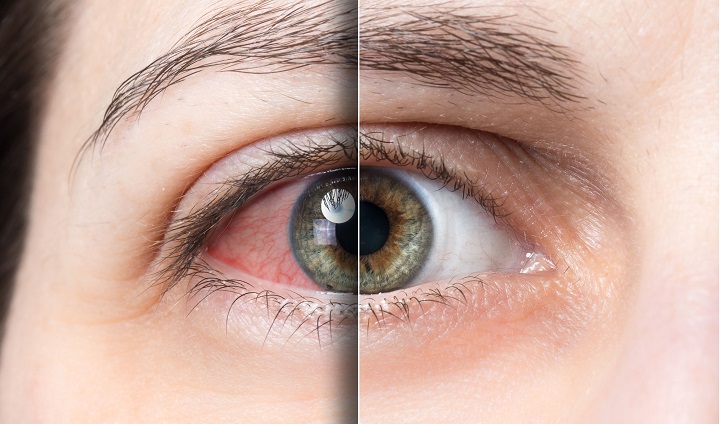
Do your eyes always sting whenever the wind blows? Do they get painful when you use those gadgets for a long period of time? Do you always feel like there’s something stuck in your eye, even though there isn’t? Do they get itchy and red? If so, you could be suffering from dry eye disease.
Dry eye disease is a multifactorial condition where inadequate amount of tears are produced or they evaporate quickly due to poor quality, according to Justin Raymond Manlongat, MD of Makati Medical Center (MakatiMed) Department of Ophthalmology. There is a myriad of symptoms which mostly include eye discomfort and visual disturbance. If severe enough, it can have an impact in a person’s quality of life, their job and simple daily activities such as reading and driving. If you suspect you have dry eye disease, here are some things to consider:
Consult an ophthalmologist. Having a complete eye exam is the first step in determining if you have dry eye disease. “Dry eye is an ocular surface disorder with a wide spectrum of clinical signs and symptoms so management may be different for each patient,” says Dr. Manlongat. He adds that most patients are prescribed with lubricant eye drops which are commonly termed artificial tears that aid in relieving symptoms. You may also be asked to undergo further evaluation, additional procedures and medications depending on the type of dry eye disease, its severity and the presence of other underlying conditions.
Change your lifestyle habits. Managing dry eye diseases also includes modifying your lifestyle, Dr. Manlongat points out. This may include changing reading habits and getting proper eye rest especially if you’re required to use digital devices such as personal computers, tablets or smartphones for a long time. He also suggests that you avoid the direct draft from fans and air conditioners. When outside, goggles or glasses can protect your eyes from the drying effect of the wind. For contact lens wearers, use them responsibly as directed.
Be patient and consistent. Dr. Manlongat says that dry eye disease may require long-term treatment. “You need to have regular consultations with your ophthalmologist to evaluate the effectiveness of your current treatment regimen based on your clinical signs and symptoms,” he adds. “The list of medications may also change over the course of treatment. The benefits of certain medications may only be observed after weeks to months of consistent usage. So, follow closely the advice of your ophthalmologist, be patient and trust that all your efforts will be worth it.”
While there isn’t a definite cure for dry eyes just yet, the symptoms can be greatly regulated with the right remedies as prescribed by a physician. You don’t have to let dry eyes limit your quality of life. Be proactive in caring for your eyes by consulting a doctor from MakatiMed now.

